#byronic hero
Explore tagged Tumblr posts
Text
The many uses of a Byronic Hero
chair ( Jane & Edward - Jane Eyre)
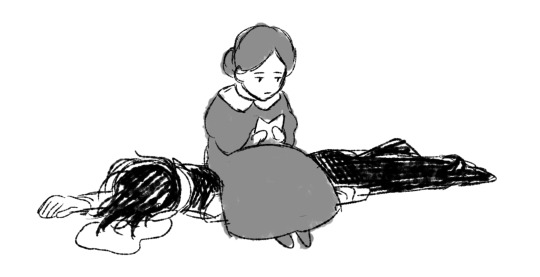
Pillow ( Christine & Erik - Phantom of the Opera)
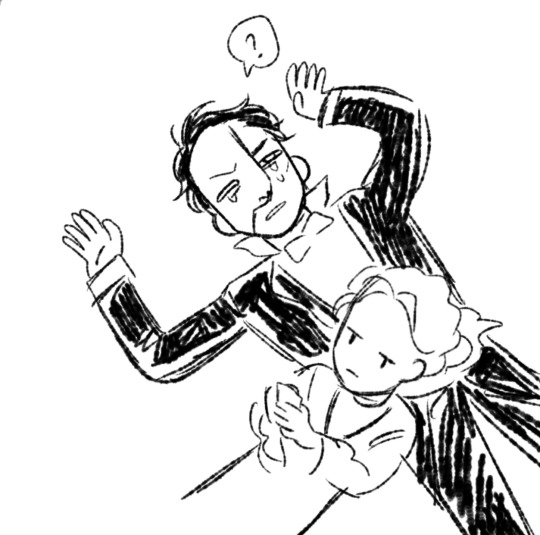
Car ( Catherine & Heathcliff - Wuthering Heights)

Water dispenser ( Edith & Thomas - Crimson Peak)
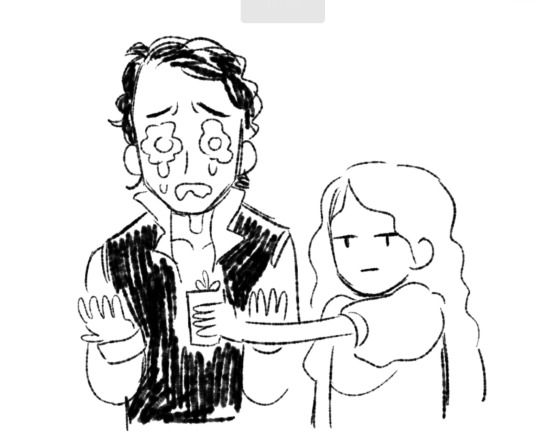
#jane eyre#mr rochester#edward rochester#charlotte bronte#classic litterature#gothic romance#crimson peak#gothic fiction#victorian gothic#wuthering heights#heathcliff wuthering heights#Phantom of the opera#Thomas Sharpe#edith cushing#erik the phantom#erik destler#byronic hero
3K notes
·
View notes
Text
ATTENTION ALL BYRONISTS! in honor of this being the 200th year of byron's death, newstead abbey (byron's historically preserved estate) released videos showing off some of their artefacts earlier this year! they can be seen on the nottingham museums youtube channel here
they recently released a video about some of the clothing byron purchased in albania and wore in his most famous portrait!



i also found this amazing project where a student recreated some of byron's clothing and 18th/19th century fashion to great effect. the clothes are (or were recently) at newstead abbey and available to be tried on by guests. this might be of interest to you who are into historical costuming recreation.

#lord byron#byron#byronism#byronist#byronists#romanticism#byronic hero#romantics#the romantics#english romanticism#lit#english literature#18th century#19th century#regency era#regency#english#fashion#historical fashion#historical costuming#clothing#historical clothing#fashion history#byron200#byron 200#newstead abbey#artifacts#museum#artefacts
220 notes
·
View notes
Text

Byronic hero vibes 🖤 Blouse & jacket by I Do Declare, lantern earrings by Omnia Studios, everything else secondhand.
176 notes
·
View notes
Note
I don't dislike Grace because none of the characters are perfect and this is probably asking a lot of a woman in 1910, but I really hated how she let her mom blame Louis for Paul's death, and treat him horribly, with very little pushback. Telling Louis "Don't let it inside" doesn't help much. But that's looking at things from a 21st century lens, for one.
I mean, they're not a family who communicates well at the best of times, but I wouldn't be surprised if there is a small part of her that blames him too. It was interesting to re-watch the ep last night and see how much the family just doesn't know what to do with Paul, but that there's really no shortage of love for him. He was institutionalised in Jaccksonville until their father died, and it's implied that Louis and their mother made the decision together to bring him home given the two-hander between them at breakfast, and are now effectively paying off the church to care for him.





It's a really interesting thread here, because in many ways Louis' both father and son for Florence in a way I don't think I picked up on the first time watching. He's patriarch of the family, but ultimately deferrent to Florence's matriarch, and this makes him both father and brother to Grace in the way that he'll later be both father and brother to Claudia.
And look, I do think Louis deep down knows it's not enough, but Grace is the only character to try and reconcile that in a scene I find super interesting, because Louis shifts directly between those roles - concerned and equal brother at first, and then shutting her down in a way that I would describe as quite paternalistic.














Paul's Grace's brother too, and what gets me about this scene is that it's like she can see it. She is worried, she is exploring their options, she's not ignoring the problem in the way that both Louis and their mother are, and it's a pattern that ultimately Louis repeats with Claudia. That paternalistic thread in him dismisses and diminishes the voices of women - including the women that he loves - in order to protect his own feelings, his own interests, his own priorities, under the guise of looking after those who can't look after themselves. The fact that immediately after this he tries to soften the harshness with the extravagant wedding gift too - again, Grace is a prized and spoilt daughter.
Paul's death is nobody's fault, he is so well-loved, but Grace, like Claudia, is voiceless and disempowered in her own family, and Louis offers her brotherhood with one hand and slams a hand on the table as her father with the other.
#and then to use her picture as wife in europe...#this show#anyway i am a grace defender!#but yes again#byronic hero moments!#louis' not trapped in the house he's always got a set of keys#grace + louis#grace de pointe du lac#amc interview with the vampire#using the main tag for this one sure#iwtv asks#iwtv 1.01#welcome to my ama#byronic hero#gothic archetypes
67 notes
·
View notes
Text
How successful would Heathcliff…




Would you like to submit a character? Click this link if you do!
#could they be a pro wrestler#heathcliff#heathcliff wuthering heights#wuthering heights Heathcliff#byronic hero#wuthering heights#withering heights#emily bronte#Emily Brontë#classic literature#literature#book poll#classic books#novel#classic novels#Ellis bell#romanticism#gothic literature#tumblr polls#polls#character polls#fandom polls#wrestling#wrestling polls#poll time#hyper specific poll#poll game#wwe#professional wrestling#pro wrestling
21 notes
·
View notes
Text
This is Lord Byron. And it's all his fault.



He is the reason we have sparkling vampires now:



But also and partially (about 50% lolol) the reason behind Ada Lovelace.


Please feel free to add, correct or reblog if you want♡
Credits to its owners.
#annabourbon#ada lovelace#lord byron#byronic hero#mary shelley#frankenstein the modern prometheus#frankenstein#john polidori#vampyre#john polidori vampire#monsters#lol#gothic#percy shelley#pirates of the caribbean#pirates#corsair#the modern prometheus#modern literature#science fiction#sci fi#fantasy#ghost stories#lake geneva#the haunting of villa diodati#twilight#fun#bvts#vampires#vampire
46 notes
·
View notes
Text
Looking up the google definition of “Byronic Hero” out of curiosity on how they define it (I’m a literary nerd ok, English Major specialty in Victorian literature here!) and oh stars I almost passed away-

My tragic fave front and center along with Heathcliffe and Mr. Darcy. Somehow I think he’d be at least a little proud.
#severus snape#pro snape#also cements my feeling that Alan Rickman was perfect to play him#his background in portrayal of Victorian lit are unparalleled#wuthering heights#pride and prejudice#mr darcy#heathcliff#snape love#harry potter#Byronic#Byronic hero
21 notes
·
View notes
Note
Is Darcy byronic?
No.
Here is a nice definition from Wikipedia: Historian and critic Lord Macaulay described the character as "a man proud, moody, cynical, with defiance on his brow, and misery in his heart, a scorner of his kind, implacable in revenge, yet capable of deep and strong affection
I don't think Darcy is a Byronic hero, if anything he's a subversion of Byronic. While he is proud, cynical, and capable of strong affection, he turns out not to be vengeful. Darcy's implacable resentment towards Wickham is built on a firm foundation and he hasn't acted on it! I think Byronic!Darcy would have hunted Wickham down and killed him. (Willoughby is also totally a fake Byronic hero, his "deep and strong affection" is false). I also don't think Darcy has misery in his heart most of the time.
Classic examples of Byronic heroes are Heathcliff from Wuthering Heights and Edward Rochester from Jane Eyre. A modern example would be Christopher Nolan's Batman.
But I'm no expert on Byronic heroes and I happen to know that a huge Byron fan recently read Pride & Prejudice, if they have time to address this (@burningvelvet)
139 notes
·
View notes
Text


Toby Stephens as Gilbert Markham from "The Tenant of Wildfell Hall" (1996 version) and Mr. Rochester from "Jane Eyre" (2006 version).
#the tenant of wildfell hall#tenant of wildfell hall#jane eyre#anne bronte#charlotte bronte#toby stephens#gilbert markham#mr. rochester#mr rochester#edward fairfax rochester#edward rochester#period drama#byronic hero
20 notes
·
View notes
Text
Keith was gorgeous in those days. When I think how he looked then, how beautiful he was — and pure. Long before I got to know him, I had a huge crush on him. For years. He was the epitome of my ideal of the tortured Byronic soul. It was quite clear even then that he was a genius. He isn't a bit shy now, but when I first met him he was agonizingly shy and painfully introverted. He didn't talk at all. I mean all that stuff that Mick did, like trying to make me sit on his lap, Keith would rather have died than do anything like that.
Marianne Faithfull, Faithfull: An Autobiography.
#keith richards#the rolling stones#marianne faithfull#Faithfull: An Autobiography#60s rock#60s icons#60#60s#classic rock#old rockstar#rockstar gf#rockstar girlfriend#mick jagger#lord byron#byronic hero#rockstar#60s aesthetic#quotes#book quotes
59 notes
·
View notes
Text
Ask Byronic Heroes : Is your girl neurodivergent?
Edward Rochester ( Jane Eyre)
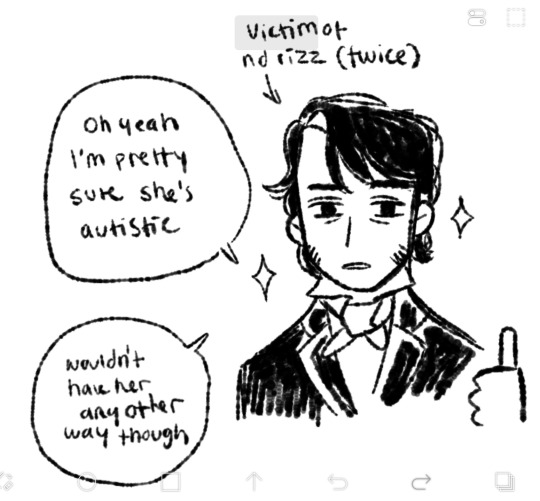
Heathcliff ( Wuthering Heights)
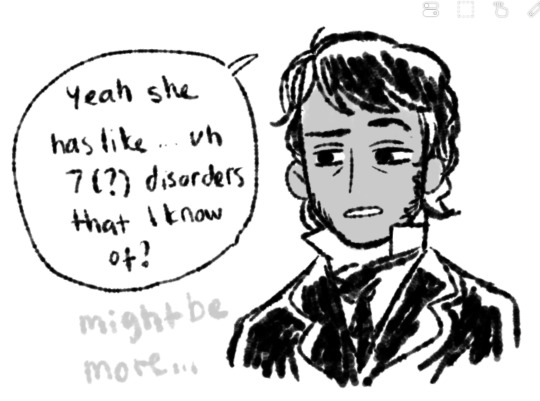
Erik ( Phantom of the Opera)
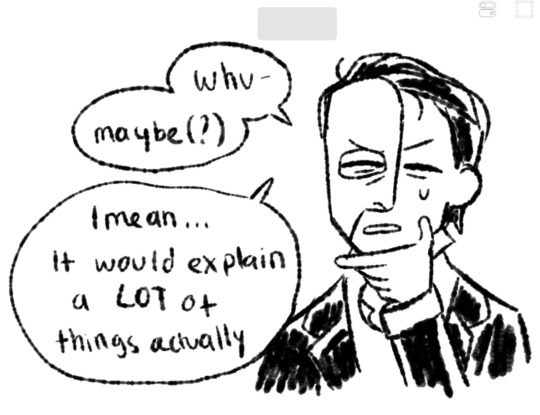
Thomas Sharpe ( Crimson Peak)
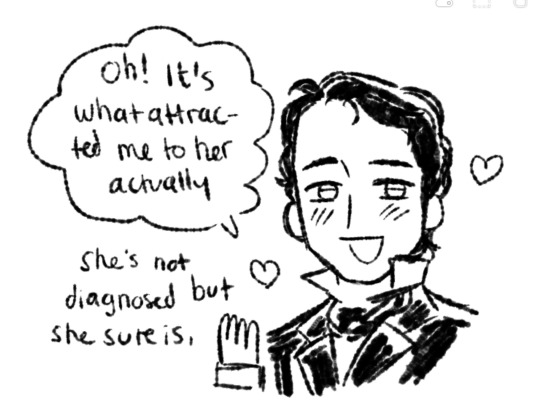
Dorian Gray
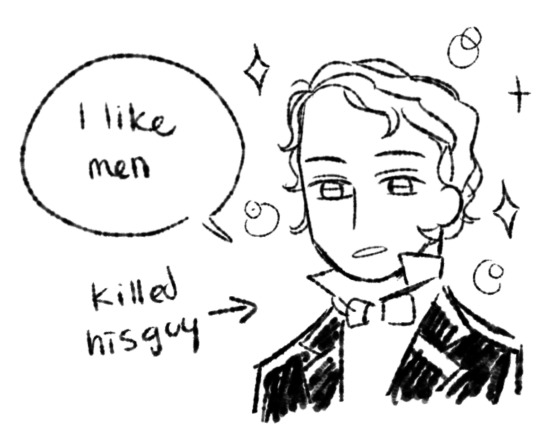
#jane eyre#edward rochester#mr rochester#charlotte bronte#classic litterature#jane eyre fanart#gothic fiction#gothic romance#jane eyre art#crimson peak#phantom of the opera musical#phantom of the opera#phanart#Dorian gray#the picture of dorian gray#heathcliff wuthering heights#wuthering heights#byronic hero
2K notes
·
View notes
Text
In a letter to W. S. Williams (14 August 1848), Charlotte Brontë compares Jane Eyre’s Rochester to the Byronic heroes of her sisters’ novels, Heathcliff from Emily’s Wuthering Heights and Huntingdon from Anne’s The Tenant of Wildfell Hall:
“You say Mr. Huntingdon reminds you of Mr. Rochester. Does he? Yet there is no likeness between the two; the foundation of each character is entirely different. Huntingdon is a specimen of the naturally selfish, sensual, superficial man, whose one merit of a joyous temperament only avails him while he is young and healthy, whose best days are his earliest, who never profits by experience, who is sure to grow worse the older he grows.
Mr. Rochester has a thoughtful nature and a very feeling heart; he is neither selfish nor self-indulgent; he is ill-educated, misguided; errs, when he does err, through rashness and inexperience: he lives for a time as too many other men live, but being radically better than most men, he does not like that degraded life, and is never happy in it. He is taught the severe lessons of experience and has sense to learn wisdom from them. Years improve him; the effervescence of youth foamed away, what is really good in him still remains. His nature is like wine of a good vintage, time cannot sour, but only mellows him. Such at least was the character I meant to portray.
Heathcliffe, again, of Wuthering Heights is quite another creation. He exemplifies the effects which a life of continued injustice and hard usage may produce on a naturally perverse, vindictive, and inexorable disposition. Carefully trained and kindly treated, the black gipsy-cub might possibly have been reared into a human being, but tyranny and ignorance made of him a mere demon. The worst of it is, some of his spirit seems breathed through the whole narrative in which he figures: it haunts every moor and glen, and beckons in every fir-tree of the Heights.”
Source: The Brontës Life and Letters (Clement King Shorter, 2013)
#defending her blorbo#charlotte brontë#the bronte sisters#anne brontë#emily brontë#wuthering heights#jane eyre#the tenant of wildfell hall#mr rochester#heathcliff#arthur huntingdon#letters#literature#english literature#character analysis#byronic hero
423 notes
·
View notes
Text
C. E. and A. are Charlotte, Emily, and Anne, obviously.
Obviously, Anne is the Brontë who most clearly deconstructs the "bad boy" Romantic hero with her negative portrayal of Arthur Huntingdon in The Tenant of Wildfell Hall. But what about her sisters with Rochester in Jane Eyre and Heathcliff in Wuthering Heights?
I was just reading @burningvelvet's in-depth analysis of the Byronic hero archetype in literature, which @bethanydelleman reblogged. When discussing the Brontës, they concluded that Emily plays the archetype fully straight in Heathcliff, since Heathcliff never changes or redeems himself, while Charlotte partly deconstructs it by playing it straight in Rochester at first but then punishing and redeeming Rochester so that he's no longer Byronic in the end. That's definitely a valid interpretation.
Yet I've also read the argument that Charlotte plays the "romantic bad boy" archetype the straightest, because she makes (or tries to make) Rochester a sympathetic character whom Jane never stops loving and who can redeem himself and become her ideal husband. From this viewpoint, Emily was the one who partly deconstructed the archetype by portraying Heathcliff as an explicitly bad man and an abuser, whose only possible romance is with is the similarly sublime and monstrous Cathy, and whom no ordinary girl like Isabella could ever hope to change. Although her deconstruction doesn't go as far as Anne's (so this argument goes), because she still creates sympathy for him and portrays his passion for Cathy as romantic.
Then of course there's the pop culture idea that both Rochester and Heathcliff are completely straight examples of romanticized Byronic bad boys, while only Anne was "the sensible one" who deconstructed the archetype. As seen in that popular yet (IMHO) slightly unfair Kate Beaton comic that shows both Charlotte and Emily swooning over dark, brooding men to Anne's disconcertion.
Of course the last option is that all three sisters deconstructed the Byronic hero archetype in different ways: Anne by dismissing him altogether, Emily by making him a compelling and tragic villain but still a villain, and Charlotte by punishing and redeeming him.
Which way of reading their work rings the truest to all of you?
#poll#the bronte sisters#charlotte bronte#emily bronte#anne bronte#jane eyre#wuthering heights#the tenant of wildfell hall#byronic hero
87 notes
·
View notes
Note
omg that analysis was everything!! thank you sm! really was a palette cleanser. would love the continuation with the parts you didn't get to - his relationship with jonah and the dynamic within the rue royal household. the housewife insult from claudia really did a number on the fandom's reading of louis. (still not over people seriously considering him the embodiment of "edwardian housewife" archetype while lestat is a classic patriarch. dunno if i wanna laugh or cry).
(x)
Thank you! And yeah, I think I've mentioned it before, but it's interesting to me that so many people take both Claudia's housewife insult and Grace's white daddy insult as effectively one-to-one attributes instead of as weapons of emasculation to not only try and hurt Louis, but to goad him into action.
The dynamic of the Rue Royale household is probably it's own entire answer, and one that might be best answered after I've finished my re-watch, but yes! Let's talk about Jonah. Or, well, about sex, haha.
Virtue and the gothic heroine
One of the key attributes of a gothic heroine is her virtue, because Gothicism as a genre is rooted intrinsically in the loss of that virtue. What that means or looks like exactly changes – in the earliest stories within the genre, that loss of virtue was a result of perversion or corruption and usually spelled doom for the heroine, and in later stories it marked a point of transformation or metamorphosis where the loss of that virtue often came to symbolise a transition from girlhood to adulthood.
Virtue was, and still is, often depicted in the genre through virginity as excellently stated in the paper Female Virtue in Gothic Literature 1780-1810 “female morality was irrevocably intertwined with a sexual code of conduct. Daughters…were reminded that their most important attribute was intact virginity and wives were constantly retold their worth relied upon their chastity and therefore their ability to bear legitimate children.”
This came to define gothic literature, and her loss of virginity became pretty vital as a character beat as it would mark this loss of agency which I talked about a bit in the last post. Significantly too though, the gothic heroine usually has men after her virtue. Which, well, - -


As put in this paper Haunted Heroines: An Examination of the Complication of the Gothic Heroine: “She is the object of the perverted sexual desire of older men, above all representing the innocence and purity that the men are themselves negations of.”
Typically, when she did lose her virginity, she’d end up with three options: she could marry the man who took her virginity, she could “give up the idea of marriage and take holy orders” (aka become a nun), or she could die. Regardless of the decision she makes, the actual choice is a really marked moment for the gothic heroine, as it’s often the only actual moment of agency she gets in a story which is invested in her disempowerment. She has to give herself away – to a husband, to God, or to death – because the gothic, particularly the female gothic, understands that once her body has been taken by a man, it can never be her own again for better and for worse.
Claudia loses her virginity way back in season 1, but she’s robbed even of that momentary agency, because her body itself stays virginal. She does not get to make a choice. The monstrosity of Claudia’s making is that she will never not be an innocent, the virtuousness that men seek to take from her can never be taken, and thus she is never allowed transformation, she is never allowed her moment of agency, and she can never belong to another. It re-emphasises her arrested development, but it also keeps her trapped as the gothic heroine in Louis and Lestat’s house forever. There is no getting out for Claudia, she dies without transformation, she dies so that she can be mourned by the monsters in the house.




The Byronic Hero and the Past
On the flip side of that, the Byronic Hero is, inherently, a romantic, both physically and poetically, or as Jean Ann Bates put in her excellent 1949 essay “The Byronic hero is distinguished by the clearly defined existence of sensuousness and its antithesis, sensitiveness.” After all, as an archetype, he’s based on Lord Byron who fucked his way through Venice while producing some of the most romantic poetry ever, in history.
Bates continues:
“The Byronic hero is almost always a man with a mysterious past. This past is usually surmised to be of wickedness and sin, and our hero is periodically haunted by feelings of remorse concerning it…the mood of the Byronic hero is one of intense melancholy and pessimism; yet we feel underlying this apparently static exterior, the beat of throbbing life energy. Like the Corsair, the Byronic hero is ‘warp’d by the world of disappointment. He seems to loathe himself and all mankind, and is always one apart from his fellow creatures…The Byronic hero’s character is amoral rather than immoral…The Byronic hero is all that is characteristic of the somewhat jaded cosmopolitan man of the world.”
The whole essay’s a great read, and I think again, really encapsulates Louis’ character, but I wanted to talk a little bit about this sense of a mysterious past and one surmised to be of wickedness and sin, because I think it’s an overlooked part of Louis’ arc.
Because he tells us in such soaring, and romantic detail, this large portion of his life, it can be easy to think we know all of it, when really, there’s a lot we don’t know about Louis as a young man. We meet him when he’s 33-years-old, we know that his father is dead, that the sugar plantation his father owned went broke, that he and his brother had a chapter of their shared life where they shuffled for pennies, but we lack a lot of context beyond these glimmers of what Louis tells us.
In particular, we don’t really know that much about his sexual history before Lestat, which is actually pretty typical of the Byronic Hero. Think the reveal of Rochester’s wife in Jane Eyre or Heathcliff’s three year absence where he mysteriously returns wealthy in Wuthering Heights and soon marries Isabella, the Byronic Hero has chapters that remain unrevealed to us, and part of that is often soaked in sexual or romantic undertones.
In the first episode, Louis talks about the fact that he didn’t consider himself a homosexual, which I think can become a focus, but I’m more interested in the earlier exchange with Daniel where Louis articulates using Lily as cover for his sexuality.






If you take this scene at face value, and look at it on its own, Louis’ saying yes, he had urges towards men, but his faith was keeping him in check, only if you look at it with the scene before it, we see him refuse to enter the church confessional after joking with Paul that Paul is wasting people's time as he has nothing to confess. An implication, perhaps, that Louis knows that he does.





My reading of that has always been that Louis was sleeping with men in New Orleans long before Lestat came into the picture, and probably a fair few, but the show plays with Louis’ unreliable narration and the mystery of his sexual history to shroud that really until Jonah’s introduction. Jonah, after all, not only confirms that Louis had been with other men prior to Lestat, (as does Louis’ familiarity with the bayou as a gay hook up site), and that he wasn’t keeping much of anything at bay through the threat of absolution, but that he was sleeping with boys.



Louis’ 33 when he’s turned in 1910, and we know from the notice in this episode that we’re now in 1917, so Louis should be 40. We don’t know how old Jonah is, but given they look like contemporaries now, I think you could pretty safely gauge that if Louis was hooking up with him when Jonah was 16, he was probably in his mid-twenties. The context of the era is, of course, important, and there are a million reasons why Louis might have taken the opportunity with a teenager (although I think given Louis’ relationship with power, particularly in the NOLA era, we can assume that plays a role) but the narrative choice of the show to make Jonah a teenager when they hooked up – just like the choice to have Madeleine sleep with a Nazi teenager – is a deliberate ethical muddying of the waters to show that these elements of the monstrousness and the predator existed in him prior to his turning.
Louis is not, and has never been virtuous. He is not chaste when Lestat first has sex with him, and he is not an innocent when Lestat turns him. He can’t be corrupted, because, like a true Byronic hero, he is corrupt.
I could talk more here about the Paris park hook-ups, or the 128 boys in San Francisco (literally the most Byron thing imaginable to fuck your way through the city and then try and write a book about your ex lmao), but I think it’s worth leaving it at the New Orleans era, because I think what Jonah represents is not just Louis’ tendency to paint himself in the best light, but the mystery of his past and his inherent sexual agency which is vital to a Byronic hero. Louis is deeply feeling, and he’s capable of being in love with Lestat and having his heart dance with another man, he’s allowed sexual agency and sexual freedom even if it does lead to a bitter fight with Lestat because he's not under the thumb of the patriarch, he is one of the patriarchs. Lestat might follow after all, he might watch, but he doesn’t interrupt, he doesn’t exert control, in fact he fills the house with other men to offer Louis the deepening of depravity even through his own jealousy and, notably, empties the house when Louis tells him to.
Again, this goes back to what I was saying in the last post, but Louis doesn’t lack agency. The townhouse is not a prison to him, Lestat’s patriarchal, yes, but so’s Louis, he’s just more emotionally manipulative about how he keeps Claudia close to him. Louis' sexuality is a huge part of him, but it also doesn't define him in the way Claudia's virginity does. After all, for Claudia her sexuality is symbolic of her eternal chastity and girlhood, a gothic heroine locked in a prison of her own innocence, whereas for Louis, it gets to be so much more, because as a Byronic Hero, he gets to be so much more.
#this is very long lol sorry#i'd actually forgotten the specifics of the seeking ass before absolution line before i rewatched the ep and it made me laugh#sir you were absolutely seeking ass before absolution i love you <3#louis de pointe du lac#claudia de pointe du lac#gonna make it a tag ->#byronic hero#louis asks#welcome to my ama#gothic archetypes
67 notes
·
View notes
Text
(The Great) Ace Attorney - Barok? More like Byronic.

So it has been confirmed (to the surprise of no one, I’m sure) that Barok is a Byronic Hero. Now all he needs is a pure-hearted heroine/love interest to comple–





(source; Barok’s folder)
*also remembering Ryunosuke’s concern for Barok’s well-being despite the latter’s racist attitude and desire to know more about him in Case 2-3*

Oh God, Ryunosuke IS the heroine/love interest!
(I mean, it makes sense. He’s in Great Britain, the birthplace of the most iconic pieces of Gothic (romantic) fiction. And Barok had been designed with vampires, werewolves and fallen angels in mind.)
*urgently running toward Ryunosuke*
Ryunosuke, stop! You’re falling for his Byronic (vampiric) charms and turning into the love interest of a Gothic romance novel!
#ace attorney#gyakuten saiban#the great ace attorney#dai gyakuten saiban#barok van zieks#ryunosuke naruhodo#baroryuu#byronic hero#mine
148 notes
·
View notes
Text
Alsooo Wei Wuixian is a Byronic hero done right, I’m convinced. Does heroic but also horrifying shit, is a sexy sadboi, is profoundly traumatized and demonstrably unstable, is unfailingly true to himself (in a cultural setting that doesn’t value that to the same degree as mine!), all while having an actual personality!

25 notes
·
View notes